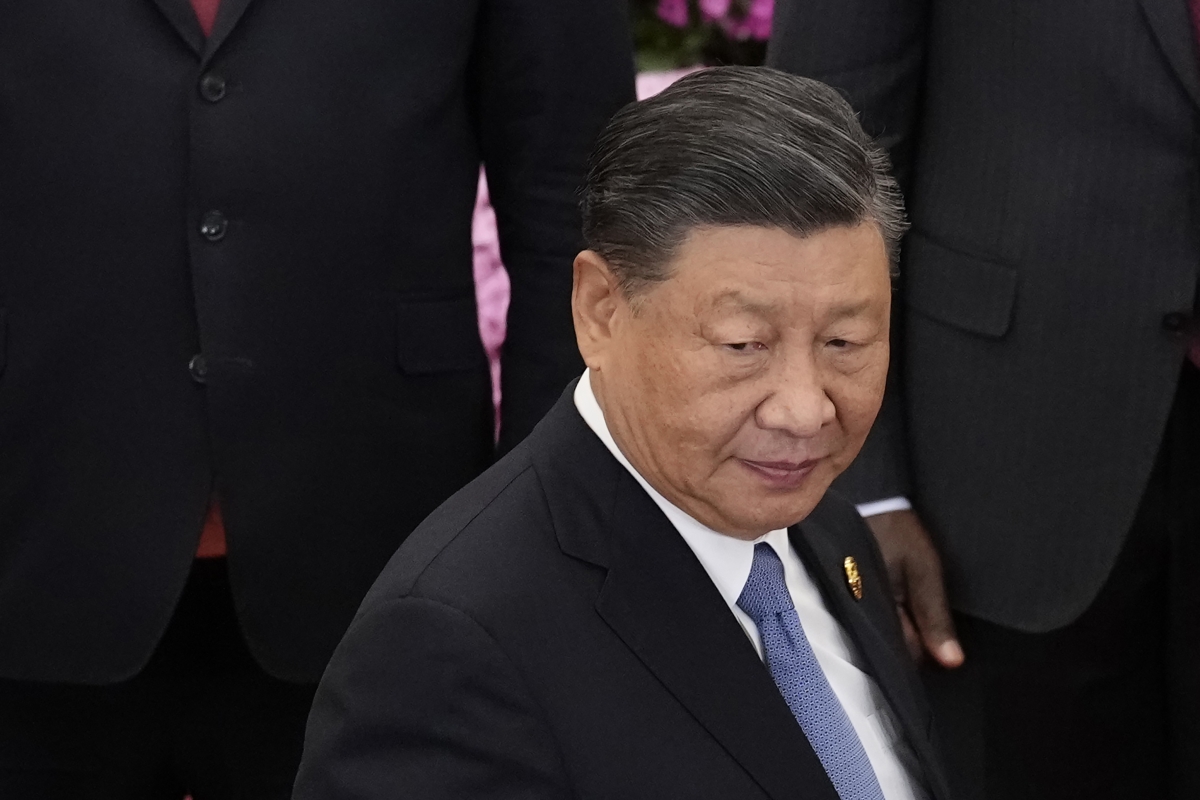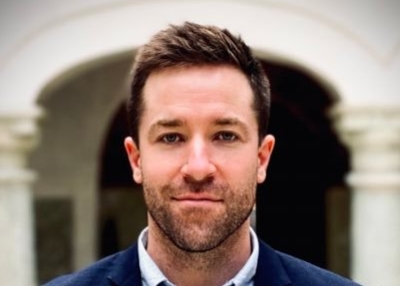Xi Signals More Growth but Same Strategy at China’s Central Economic Work Conference

Don’t expect Xi Jinping to change his economic strategy anytime soon. China’s leader used the annual Central Economic Work Conference (CEWC), held on Monday and Tuesday this week, to clarify that, despite mounting economic difficulties, persevering with his signature approach of “high-quality development” is “the hard truth of the new era.” But Xi also signaled that he wants more focus on growth next year, including through improved policy implementation.
"Hard Truths"
Talk of hard truths is significant because it explicitly invokes and replaces former paramount leader Deng Xiaoping’s epoch-defining maxim that “development is the hard truth.” Deng uttered the phrase in 1992 on his celebrated Southern Tour to revitalize the Party’s “reform and opening” policies following a conservative turn in Beijing after the Tiananmen protests of 1989.
Xi recognizes how reform and opening both transformed and empowered China, but his economic agenda is now focused on solving the problems created by the rapid and poorly regulated growth that Deng unleashed. That’s why he formally updated the Party’s core mission from maximizing economic growth to improving people’s livelihoods in 2017.
Xi explained high-quality development in his report to the 20th Party Congress last year. It firstly involves implementing a “new development concept” to make growth more innovative, coordinated, green, open, and equitable. Secondly, it means pursuing a “new development paradigm” focused on boosting domestic demand, indigenous technology, and foreign dependencies on China.
Xi is comfortable with lower growth because he accepted long ago that a downward structural adjustment in China’s growth potential should come with a shift in the Party’s focus to political, social, and environmental goals. More recently, U.S. economic restrictions aimed at China have also increased his tolerance for lower growth because of a perceived need to reduce the country’s dependencies on Western technology and supply chains.
Despite admitting challenges such as inadequate demand, industrial overcapacity, weak expectations, financial risks, and external pressure, the CEWC did not express panic about China’s economy and gave no suggestion of fundamental shifts or large-scale stimulus. Beijing instead said, “China’s economic recovery is improving, and high-quality development is steadily advancing” and that it would maintain its “active fiscal policy” and “prudent monetary policy.”
Nonetheless, this year’s CEWC also suggests that Beijing will shift its policy settings moderately toward growth next year. The Party promised to “moderately strengthen fiscal policy” and “make effective use of fiscal policy space” to further encourage growth. It said it would prioritize policies that "stabilize expectations, growth, and employment,” and implied a greater emphasis on reactive “counter-cyclical” over preemptive “cross-cyclical” adjustments to macro policy.
Expectations for Smarter Growth
These commitments lend credence to reports saying the government is considering a growth target of between 4.5% to 5.5% next year, and market chatter of a stimulatory budget deficit target that again exceeds Beijing’s traditional self-imposed limit of 3% of GDP. Given this year’s target of “around 5%” followed only 3% growth in the lockdown-affected year of 2022, these predicted numbers represent a moderately more expansionary economic policy in 2024.
For next year’s economic policy, the CEWC reaffirmed Xi’s standard mantra to “make progress while ensuring stability” but added new Politburo-approved language to “promote stability through progress.” According to the Xinhua state news agency, this phrase implies Beijing will more actively pursue progress in supply-side reforms such as “structural adjustment, quality enhancement, and efficiency improvement” as a foundation for stable development.
A further directive to “build the new first and discard the old later” underscores the Party’s newfound determination to favor incremental and well-planned reforms over sudden policy shocks. The last thing Xi wants is a repeat of 2021, when the “compounding errors” of a policy-induced property crisis, tutoring crackdown, tech rectification, and power shortages all combined to create an economic funk from which the country is still struggling to emerge.
Tensions between economic growth and national security became prominent in China this year, with raids on international firms, bans on foreign technology, and sweeping amendments to spying laws all denting market confidence. The CEWC called for “a dynamic balance” with “high-quality development” and “high-level security” being “mutually reinforcing.” Awareness of the issue is a good sign, but achieving this balance will be hard and policy volatility remains likely.
This year’s CEWC was also Xi ally Li Qiang’s first as Premier. His late predecessor, Li Keqiang, was always described as “making specific arrangements” for next year’s economic work, but Li Qiang is portrayed as “outlining requirements” for that work and for implementing Xi’s speech, signals of slightly stronger language that hints at greater authority. A more empowered premier is a positive sign for somewhat more pragmatic economic policymaking, as Li Qiang is known to be relatively pragmatic toward encouraging private business.
The CEWC said the Party must “enhance the consistency of macroeconomic policy orientation” and “incorporate non-economic policies in the assessment of macroeconomic policy consistency.” Some analysts argue this phrase means Beijing will ensure security-related policies will be adjusted to prioritize economic growth policy. But coordination across all policy domains could also mean adjusting economic policies to serve other goals and will furthermore necessitate stronger coordination between government agencies by Xi and the Party center.
Continuation of Overall Political and Economic Strategy
None of the more encouraging developments mean Xi or the Party plan to take a backseat when it comes to economic policy and regulation. Beijing may set a relatively ambitious growth target and raise fiscal stimulus next year to try reverse negative sentiment about the country’s economic trajectory. But while development remains a central priority for the Party, under Xi this equates to high-quality development, which means a continued focus on political control, national security, environmental protection, social policy, and geopolitical power.
Beijing’s rising focus on addressing China’s growth problems also means more attention to information control. The CEWC said the Party will “strengthen economic propaganda and public opinion guidance and sound a bright view of the Chinese economy.” This line indicates further suppression of negative economic data and greater political pressure on both Chinese and foreign firms who share negative economic narratives about China.
The CEWC defined nine specific areas of policy focus in 2024. Priority number one is “using scientific and technological innovation to advance the construction of a modern industrial system.” Last year it was “expanding domestic demand.” This change shows a stronger emphasis on Party-directed industrial policy to build a “new national system” revolving around innovative growth and strategic competition with the West. The CEWC highlighted fields including artificial intelligence, biotechnology, drones, green technology, and quantum computing.
The other focus areas for next year are, in order: expanding domestic demand, especially of new energy vehicles and consumer electronics, but with greater use of investment to stimulate spending; deepening reform in key areas, such as planning a new round of fiscal and tax system reforms to address central-local imbalances; expanding high-level opening, including in healthcare, services, and telecommunications industries; prevent and resolve risks in the financial sector, especially by stabilizing the property market and resolving local government debts; promote agriculture and rural work; promote regional coordinated development; promote green low-carbon development; and ensure and improve people’s livelihoods.
The CEWC also declared, for the first time, that the Party must make “advancing Chinese-style modernization” its “top political priority,” doubling down on a key theme of the 20th Party Congress. This supports an overall reading of the meeting as emphasizing consistency with existing policy themes, but reinforced by new and existing proposals that address cyclical challenges and structural problems in a gradual and managed fashion.
Xi knows he needs economic growth to achieve his political goals. As Xi acknowledged at the Party Congress, “without a solid material and technological foundation, it is impossible to build a great modern socialist country in all respects.” But he will not sacrifice his political goals to achieve economic growth. Firms and investors should not hold out hope for the Party to deliver a significant course correction on economic policy at the Third Plenum next year.

